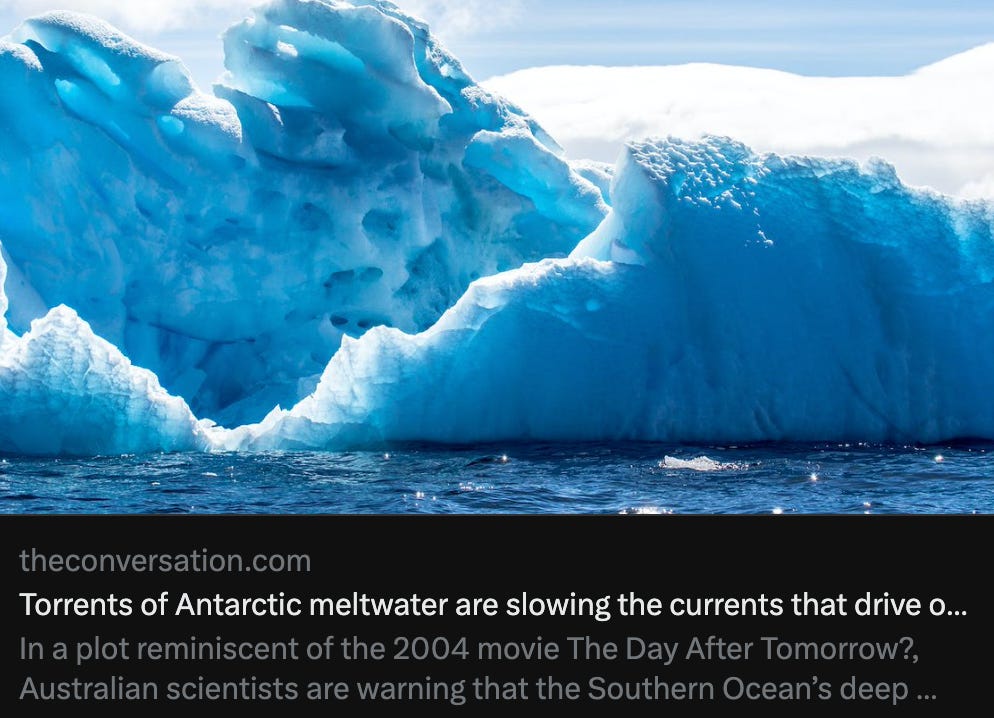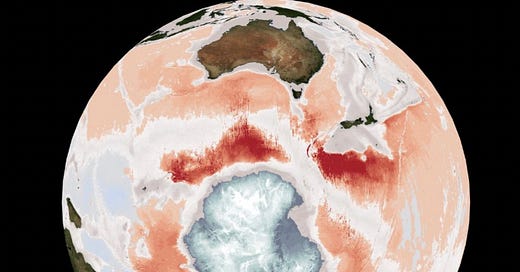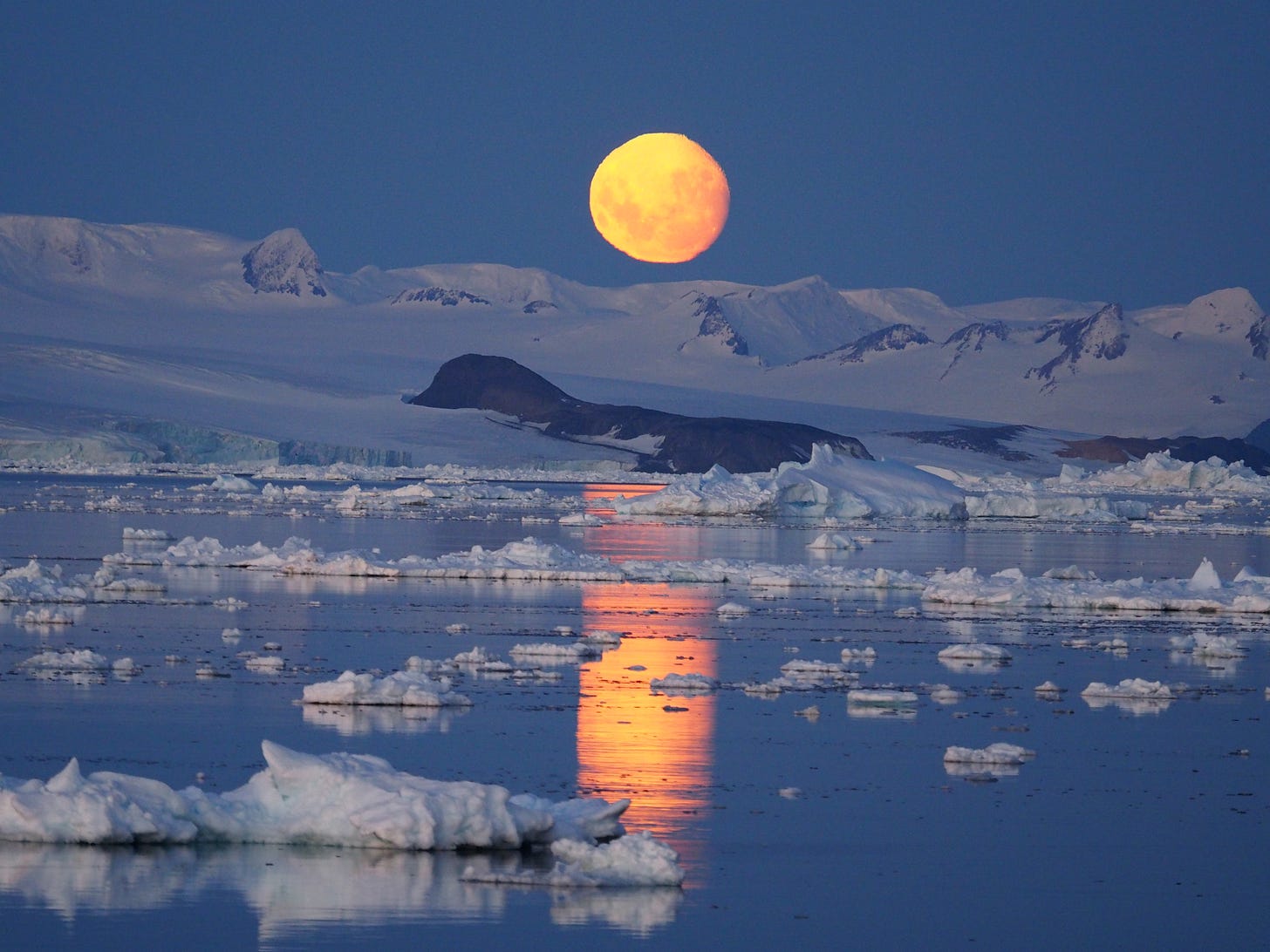Hello friends,
The voyage log remains frozen in time as my Antarctic writing temporarily takes me down a different path. I am focusing on science communication and policy for now, and I will share my work here for those who are interested.
If you are waiting for the voyage log to recommence: thank you for your patience and please stay tuned - I look forward to returning to this soon.
New research released on March 29, 2023 showed that freshwater from melting glaciers will slow down Antarctic overturning circulation, with a potential collapse this century. For many people, this news was both alarming and difficult to understand. So what does this mean, and why does it matter?

The global ocean is made up of five connected basins. Water flows constantly between them in streams called currents.
Ocean currents play a vital role in regulating the earth’s climate by moving water, heat, carbon and nutrients from one part of the ocean to another.

While some (surface) currents are set in motion by wind, tides and the spin of the earth, deep, slow-moving currents are generated by differences in density (cold, salty water sinks below warm, fresh water). The polar regions are central to this process.
Exactly how this works is complex, but in short: cold, salty water is produced when sea ice forms around Antarctica.
This water is denser than the water around it, so it sinks.
This sinking action works like a pump that drives the deep, slow-moving currents that help regulate the earth’s climate.

This excellent video shows how the polar regions contribute to global ocean circulation.
Dr Andy Hogg, Chief Investigator from the ANU hub of ARC Centre of Excellence for Climate System Science worked with UNSW collaborators and the National Computational Infrastructure’s VizLab team, using a high-resolution ocean model, to produce this animation.The trouble is: the ocean around Antarctica is changing.
It's getting warmer.
In some areas ice shelves are melting, making seawater fresher and less dense.
This could weaken Antarctica's pumping action, leading to disruptive changes in global ocean circulation.
In some ways this isn't 'new news'. In 2017, scientists noted the global implications of changes around the Antarctic coastline: "Continued warming and freshening have important consequences beyond the Southern Indian Ocean."
Similar phenomena are already underway in the northern hemisphere. Deep ocean currents originating in the Arctic Ocean have been weakening for decades. This research from 2021 says they're at their weakest in 1000 years.
So, what about this latest research? Well, it adds new data, insights and urgency to the picture.
@ProfMattEngland writes when they add predicted meltwater increases to models of ocean currents, dynamics that help drive ocean circulation decline by more than 40% by 2050.
You can read a fantastic digest of this new research and some of its implications on The Conversation.

Some of the information in this thread was sourced from a page I prepared for the Antarctic and Southern Ocean Coalition a couple of years ago. It’s a good place to start if you’re keen to learn more about the Southern Ocean and the role it plays in global ocean circulation.
While this information may not offer much consolation, I hope it offers a little clarity. I think there is value and comfort in seeking to understand the amazing world around us - even as it changes - and finding gratitude for what we know - even if it can be painful.
Finally, I would like to acknowledge that the knowledge we have today is a product of the inquiring minds, dedicated research and tireless hard work of so many incredible humans.
I celebrate their contribution and commitment to advancing human knowledge for good.









